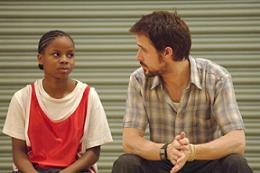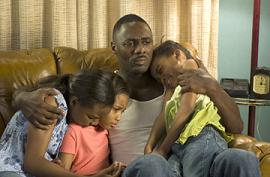 Even though Ryan Gosling ( “The Notebook”) is up for an Academy Award for his performance in the indie film “Half Nelson,” the film played in such limited release last summer that it’s hard to imagine many outside of Hollywood caught it in theaters. Fortunately, Gosling’s performance as a drug-addicted teacher at an urban middle school was released on DVD this week. “Half Nelson” flips every stereotype found in other inspirational teacher movies on its head and is not so much a movie about redemption, but a story about offering grace to those around us, regardless of whether or not their lives are ever redeemed.
Even though Ryan Gosling ( “The Notebook”) is up for an Academy Award for his performance in the indie film “Half Nelson,” the film played in such limited release last summer that it’s hard to imagine many outside of Hollywood caught it in theaters. Fortunately, Gosling’s performance as a drug-addicted teacher at an urban middle school was released on DVD this week. “Half Nelson” flips every stereotype found in other inspirational teacher movies on its head and is not so much a movie about redemption, but a story about offering grace to those around us, regardless of whether or not their lives are ever redeemed.
Dan Dunne (Gosling) is an unorthodox history teacher who despises the school-approved curriculum and uses a more thought-provoking style of teaching. He teaches his students that every major historical event can be explained by dialectics–the idea that conflict is created by two opposing forces. Dialectics could also describe Dunne’s life. While he desires to be the kind of teacher who changes the world one student at a time, his ideals are at odds with his love of crack. His secret drug habit is dscovered by one of his students, a 13-year-old girl named Drey, who finds him getting high in a locker room after school. It is a moment of total humiliation for Dunne, but it is also the beginning of an unusual friendship.
In this story, it is Drey (brilliantly played by Shareeka Epps) who becomes something of a mentor to Dunne, instead of the other way around. She has a brother in jail because of drugs, an absentee father, and a mother who works all of the time. But even without any socioeconomic advantages, Drey is determined to get an education and make something of her life. When the adults around her fail her again and again, she refuses to let that define her view of herself.
On the other hand, it seems as if Dunne can only define himself by the failures in his personal life. His connection with Drey is one of the few bright spots in his life, but even as he sees the need for Drey to have a father figure in her life, it is still not enough to make him stop using drugs. Everty time he takes a step forward to sobriety, he slides two steps back. Still, Drey stays by his side because she understands his frustration with a bleak world.
“Half Nelson” is powerful storytelling, not only because of what happens to these two characters, but also because of what doesn’t happen to them. There is not an uplifitng, inspiring transformation to Dunne. Just as the audience is never give much of an explanation as to why Dunne is so messed up to begin with, the movie offers little in the way of answers. Dunne does not seem to have a huge impact on the lives of his students in spite of his methods in class, as we might expect. Dunne doesn’t kick his drug habit–yet–though there is a glimmer of possibility that he will. The only certainty is that Drey will continue to love him and forgive him for his shortcomings. As an audience we are left with the hope that this will be enough to help Dunne change, but, just like in real life, there are no guarantees.
For its uneasy but natural look at the struggle to accept grace when other, opposing forces pull at the soul, “Half Nelson” should have been a stronger contender in this year’s Oscar race, and is now officially added to my Top Ten list for 2006.


